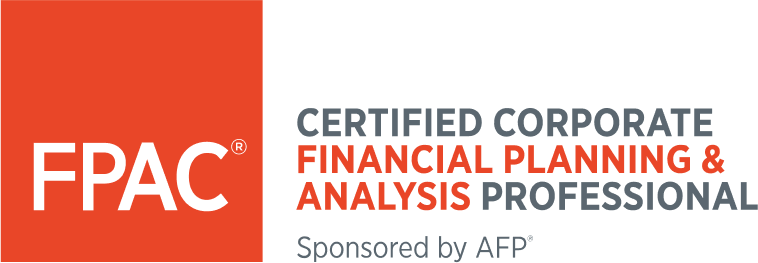FPAC Profile: From the Football Field to the Head of Finance

Marcus Gadson, CTP, FPAC, has always had a mind for math. “My math scores were high in school; it came easily to me,” he said.
When he went off to Florida State University as a student athlete, he had narrowed his major down to either finance or engineering. Driven and pragmatic, for Marcus, finance was the better option to balance with his athletic pursuits. And he was right.
After graduating with honors, Marcus spent the first four years of his career as a financial analyst, working for Lockheed Martin, ADERANT, and MEAG Power before landing the role of Capital Analyst with Fresenius Medical Care North America (previously
Fresenius Kidney Care). In that role, his primary task was to utilize various financial models to assess the feasibility of different capital investment projects. Marcus was further inspired to grow along this career path by time spent at AFP annual
conferences. One event, in particular, had an impact: a one-day financial modeling course. “Taking that course solidified my interest in financial modeling and provided me with an even deeper understanding of the process,” said Marcus.
Which leads us to today
After nearly seven years with Fresenius, where he climbed the ladder to become Senior Finance Manager, Marcus moved on to his present position as Finance Director of Wellpath at their Atlanta, Georgia, division. Core aspects of Marcus’ job include managing the P&L and cash flow activity and quantifying headwinds and tailwinds impacting the company’s operational execution and financial performance. The latter includes developing and maintaining a list of recommendations to improve financial performance, defend against headwinds, and capitalize on tailwinds. He is also responsible for managing contract amendments with clients and vendors.
Marcus credits sessions and courses he attended at AFP conferences for a lot of the skills and knowledge that have helped him in his current job. In particular, he named a session on executive presentations and a course on financial modeling as standouts.
The training and skills gained at AFP conferences help finance professionals get a seat at the table where decisions are being made,” he said. “The trainings emphasize the importance of knowing the various inputs that influence a company’s performance, communicating inputs and outputs, and making recommendations to operational leaders.”
These skills also helped Marcus formulate his approach to the issue that weighs most heavily on his mind: the make-or-buy decision. To expand, the make or buy decision involves weighing the pros and cons of whether the company should perform a service on its own — thereby assuming all associated financial burdens — or focus on core competencies and contract out certain services to third parties.
How does Marcus approach it? “I won’t spill the beans, but the approach requires us to utilize sophisticated modeling and risk management practices,” he said.
Honing his communication skills
As we turn to the immediate future, Marcus’ plans include honing his skills in cross-departmental communication. “My advancement has led to more opportunities to communicate with different departments including IT, Procurement, HR, Legal, and Client Relations,” he said, making good communications skills essential to his future success.
Driving the expansion of services provided by Wellpath is another “near future” goal of Marcus’, stating that such a move would entail a combination of financial analysis and Porter’s Five Forces model, which helps companies identify and analyze the five competitive forces that shape all industries, as well as drilling down to an individual industry’s strengths and weaknesses.
In terms of career goals, Marcus has his sights set on becoming CFO of a healthcare company in the private equity sector. “I love the idea of working in an environment that collaborates with a wide range of stakeholders, from patients and customers to healthcare staff, related vendors, and, where appropriate, government affairs,” he said.
Becoming a strategic business partner
Marcus pursued the FPAC certification because “it was the only certification that merges finance principles with operational decision-making,” he said. With his recent career advancements, Marcus is required to fill the role of strategic partner to the business. “The FPAC addressed this requirement in the AFP Exam Prep Platform,” he said.
The FPAC program helped Marcus fine-tune the tools in his toolbox, making him a more valuable resource to the company and finance profession overall. Key lessons he found particularly useful include financial modeling, scenario analysis, risks and opportunities, and delivering formal recommendations.
Not only did the FPAC contribute to his knowledge and skill base, it also helped him advance in his career. “Shortly after earning the FPAC credential, I was promoted to Senior Finance Manager,” said Marcus. “And within a few months, I attained an external promotion to Finance Director at Wellpath.”
The FPAC credential is one Marcus would recommend to anyone seeking a career in FP&A: “The coursework teaches critical skills that can help any finance professional transition from being a number cruncher to a dynamic finance business partner.”
Learn more about the benefits of the FPAC and how it can help you stand out in a crowded field.

